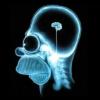
jdtic kappa antagonist bulk/group buy
#421
Posted 06 February 2014 - 07:11 PM
#422
Posted 06 February 2014 - 07:13 PM
I don't think he's on here and he only did it recently and he got it 2 days ago or something he was just waiting on to see if he wud get it
that's a silly story
sponsored ad
#423
Posted 06 February 2014 - 07:13 PM
Well that one you can just check out. BUT, you need a company details...
#424
Posted 06 February 2014 - 07:16 PM
#425
Posted 06 February 2014 - 07:18 PM
#426
Posted 06 February 2014 - 07:20 PM
That's medchemexpress i already tried they have procedures in place that guarantee you are a legitimate research facility. You have to send them tax papers and all that shit.
Then I guess we'll jut have to stick with the original plan for now and go with the 2.5mg and buy it through the legit company. It seems to only way at the moment. Other guys? What's everyones opinion ?
Also, before this topic gets deleted. Can JDTic be administered via injestion as well as subliminal ?
Edited by KieranA001, 06 February 2014 - 07:23 PM.
#427
Posted 06 February 2014 - 07:29 PM
Well I know someone who recently purchased some from them and he made the whole thing up....he tried it but it didn't rlly help him for his problems.
If it doesn't work for him then why not ask him to sell it to you?
#428
Posted 06 February 2014 - 08:51 PM
Why is it a silly story ? I will talk to him when he wakes up tomorrow and find out details of what he did to obtain it but I'm 100% certain he did
How do you know him?
#429
Posted 06 February 2014 - 11:09 PM
Are you sure it was from that link or was it the JDTic 2HCL version as here: www.medchemexpress.com/JDTic-2HCl.htmlHe bought it from here: http://www.medchemex....com/JDTic.html
All he did was make a fake email address and say he was a research company and I think his friend linked his number to a company so if they called that company it wud call him haha...don't think they rang at all but yeah he managed to get it .
#430
Posted 07 February 2014 - 02:37 AM
but i do trust the safety measures put in place by the industry, they have stricken a good balance between safety and progress simply because a good balance is most profitable. I agree that there's probably a very small chance of problems but there is a possibility of sudden death, that's why they stopped even when side effects were "unremarkable". Unless you believe there's some kind of conspiracy, they gave up the development of a very profitable drug because they thought it was too dangerous to proceed and you can bet they push the profit side vs the safety side as much as they can.
I would be fine with testing it myself but knowing that it could cause sudden death and our test group would be at least twice as big as the one in the study, i dunno if i'm willing to be the one responsible for facilitating it. I'm paranoid enough about the legality as it is, If there was a death and an investigation i would be fucked, My identity is not concealed at all. not to mention that i would feel terrible and responsible for it.
SocialPiranha, beats of tachycardia do NOT cause sudden death. I think you're beginning to get genuinely paranoid. If research is in fact halted over that (which I don't think has happened yet, just one study has) and considering the side-effects of every other psych drug that exists, then yes, it would have to be due to revenue stream management. For one thing, it would be hard for even a miracle drug to be profitable for a company if it eats up their multi-billion dollar antidepressant business. Development would also most definitely be halted for a drug that gave, say, 10 months of relief with a single dose. Conspiracy is a silly word to describe solid business decisions. Pharma executives are on record saying they are only interested in drugs that must be taken chronically - and if possible, in perpetuity - because it is so much more profitable. How many new antibiotics - as close to a 'cure' as you can get - have we had come onto market in the last 5 years? Your assumptions about the industry above are based on nothing but rationalizing your anxiety. I hope you're able to see that.
Getting everyone to sign a waiver before anything is shipped to them agreeing not to consume the substance that is only for research purposes should absolve you of even the almost zero level of risk. There is nothing special about making a declaration before payment or the converse. The disclaimers on herbs/legal highs are aimed at drug enforcement agencies, they are not an effective means of releasing liability. What does transfer liability is the act of ordering something that is not recognized as safe and consuming it. Courts are not automatons. I mean, how many drug dealers do you know who've been sued? Or head shops? Again, this is all hypothetical because no one is going to drop dead or so much as feel lightheaded.
You're entitled to have second thoughts, but you should be cognizant of slipping into irrationality. I find it hard to fathom that people here who've taken stimulants, hallucinogens and/or hard narcotics are worried about THIS. It really makes no rational sense at all.
Beyond that, I think this thread is too good a resource to just be deleted like that.
Edited by celebes, 07 February 2014 - 03:09 AM.
#431
Posted 07 February 2014 - 02:56 AM
Investigators examined more than 38,000 electronic medical records and found a "slight but significant" association between QT prolongation and prescriptions of citalopram or escitalopram. Similar to previous research, a significant association was also found for amitriptylline and methadone.
The authors wrote: "Nearly one in five patients treated with these antidepressants who underwent electrocardiography had QT intervals which would be considered abnormal."
They emphasized that nobody knows what the clinical significance of this is.
However, they point out that even though a longer QT interval raises the risk of serious heart rhythm abnormalities, the risk of developing them is still extremely rare, while at the same time the QT interval increase was "modest".
Roy Perlis, MD, of the MGH Department of Psychiatry and corresponding author of the report, cautions that the results of this study should not cause patients taking citalopram or escitalopram to stop taking their medication. "I worry more about people stopping their antidepressants unnecessarily than about the QT prolongation risks," he explains.
So drugs which cause abiding QT prolongation include the 2nd, 4th and 8th most prescribed antidepressants in the US and anyone is worried about something that caused a single instance of tachycardic beats in two people? Really?
Edited by celebes, 07 February 2014 - 02:59 AM.
#432
Posted 07 February 2014 - 04:41 AM
#433
Posted 07 February 2014 - 04:59 AM
I don't know where to go from here but i'm definitely having serious second thoughts and i think we at least need to dive into this further and not just pretend we know shit without really knowing.
Edited by socialpiranha, 07 February 2014 - 05:02 AM.
#434
Posted 07 February 2014 - 05:10 AM
Edited by tritium, 07 February 2014 - 05:12 AM.
#435
Posted 07 February 2014 - 05:22 AM
#436
Posted 07 February 2014 - 05:25 AM
I think it would be irresponsible of me not to maintain a slightly paranoid attitude in terms of the possible consequences of this substance. Qt interval prolongation and actual ventricular tachycardia are two totally different things, Qt interval is just a marker for heart function. Ventricular tachycardia is very rare and often serious, it's not just the normal tachycardia you get from too much coffee or stimulants or whatever, it is a dangerous thing which often turns into ventricular fibrillation and cardiac arrest.
The point is you're not being slightly paranoid.
Prolonged QT is the electrical manifestation of predisposition to VT so it is not at all a totally different thing. In fact it is much more relevant to the discussion of a small number of tachycardic beats occurring in isolation once than what I presume you're thinking of: the VT that develops secondary to cardiac tissue damage e.g. from a previous MI and eventually degenerates into VFib. We can agree THAT is very serious, yet not at all rare. My cardiology might be rusty from school but this is basic stuff.
What's more, the concentrations used in the study to establish prolonged QT (remember that?) were more than 8000 times higher (in monkeys) than that in the study and another factor of 10 higher for a 100mcg dose. 8000 times more to establish prolonged QT which, again, is only a precursor to VT. The fact that it occurred after the same length of time in both individuals further suggests that it is peak dose related.
Edited by celebes, 07 February 2014 - 05:33 AM.
#437
Posted 07 February 2014 - 05:30 AM
I heard somewhere that heart complications are related to sigma receptor agonism/antagonism...
Physiologic effects when the σ–receptor is activated include hypertonia, tachycardia, tachypnea, antitussive effects, and mydriasis. Some σ–receptor agonists—such as cocaine, a weak σ–agonist—exert convulsant effects in animals. Behavioral reactions to σ–agonists are rather heterogeneous: some individuals find σ–receptor agonists euphoric with significant anti-depressive effects. Other individuals, however, experience dysphoria and often report feelings of malaise or anxiety.
Perhaps taking a σ–receptor antagonist along with jdtic would completely block any possible tachycardia?
#438
Posted 07 February 2014 - 05:38 AM
#439
Posted 07 February 2014 - 05:39 AM
Perhaps taking a σ–receptor antagonist along with jdtic would completely block any possible tachycardia?
Idiopathic VT (which I think doesn't lead to increased cardiac risk anyway) is often caused by hypomagnesaemia... which happens to be the first line treatment. That's abiding VT without organic damage being treated by magnesium, never mind momentary beats.
#440
Posted 07 February 2014 - 05:41 AM
[Article in French]
Fauchier JP, Fauchier L, Babuty D, Breuillac JC, Cosnay P, Rouesnel P.
Author information
Abstract
Certain drugs can induce ventricular tachycardia (VT) by creating reentry, ventricular after potentials or exaggerating the slope of phase 4. These may or may not be symptomatic, sustained or non-sustained and have variable ECG appearances: monomorphic or polymorphic, bidirectional, torsades de pointes. They risk degenerating into ventricular flutter of fibrillation and have been held responsible for the increased mortality observed unexpectedly in some long-term treatments. The drugs responsible are mainly those used in cardiology, probably due to predisposing circumstances (cardiomegaly, cardiac failure, previous severe ventricular arrhythmias, therapeutic associations, metabolic abnormalities). These include primarily the antiarrhythmic drugs (IA, IC, sotalol and bepridil), digitalis, sympathomimetics and phosphodiesterase inhibitors. These complications may be toxic or idiosyncratic, in patients with or without cardiac disease, and may also occur with other drugs: vasodilators and anti-anginal drugs (lidoflazine, vincamine, fenoxedil), psychotropic agents (phenothiazine and imipramine), antimitotics, antimalarials (chloroquine) or antibiotics (erythromycin, pentamidine). The prognosis is severe and the treatment is often difficult which makes prevention, helped by repeated surface ECG (or Holter monitoring), very important with careful assessment of patients at risk.
#441
Posted 07 February 2014 - 05:43 AM
One third of the patients experience v-tach. If you can provide some statistical info on how often this leads to serious complications that would be progress otherwise we're just pretending to know more than each other. I've been trying to find other drugs which induce ventricular tachycardia and i'm not having much luck.
My medical degree says I'm not pretending. I see you haven't refuted anything I've said so far with anything but emotion.
From a review by the European Heart Journal : In the documented absence of heart disease, spontaneous NSVT does not carry any adverse prognostic significance.
#442
Posted 07 February 2014 - 05:45 AM
Ibogaine is a sigma agonist and sigma agonists apparently induce tachycardia so maybe we can conclude that ibogaine induces tachycardia.One third of the patients experience v-tach. If you can provide some statistical info on how often this leads to serious complications that would be progress otherwise we're just pretending to know more than each other. I've been trying to find other drugs which induce ventricular tachycardia and i'm not having much luck.
http://en.wikipedia....:Sigma_agonists
http://en.wikipedia....iologic_effects
#443
Posted 07 February 2014 - 05:47 AM
#444
Posted 07 February 2014 - 05:51 AM
[Drug-induced ventricular tachycardia].
[Article in French]
Fauchier JP, Fauchier L, Babuty D, Breuillac JC, Cosnay P, Rouesnel P.
Author information
Abstract
Certain drugs can induce ventricular tachycardia (VT) by creating reentry, ventricular after potentials or exaggerating the slope of phase 4. These may or may not be symptomatic, sustained or non-sustained and have variable ECG appearances: monomorphic or polymorphic, bidirectional, torsades de pointes. They risk degenerating into ventricular flutter of fibrillation and have been held responsible for the increased mortality observed unexpectedly in some long-term treatments. The drugs responsible are mainly those used in cardiology, probably due to predisposing circumstances (cardiomegaly, cardiac failure, previous severe ventricular arrhythmias, therapeutic associations, metabolic abnormalities). These include primarily the antiarrhythmic drugs (IA, IC, sotalol and bepridil), digitalis, sympathomimetics and phosphodiesterase inhibitors. These complications may be toxic or idiosyncratic, in patients with or without cardiac disease, and may also occur with other drugs: vasodilators and anti-anginal drugs (lidoflazine, vincamine, fenoxedil), psychotropic agents (phenothiazine and imipramine), antimitotics, antimalarials (chloroquine) or antibiotics (erythromycin, pentamidine). The prognosis is severe and the treatment is often difficult which makes prevention, helped by repeated surface ECG (or Holter monitoring), very important with careful assessment of patients at risk.
What you're missing is that is referring to prolonged treatment with doses designed to affect heart function in people with cardiac damage of some kind. I have no qualm with that. And if anyone has a damaged heart I would err on the side of caution. Even multi mg infusions might be a dealbreaker. But we're not talking about any of that are we?
#445
Posted 07 February 2014 - 06:12 AM
#446
Posted 07 February 2014 - 12:38 PM
#447
Posted 07 February 2014 - 12:46 PM
What's the difference between ordering 5mg of lead and 5mg of JDTic legaly?
#448
Posted 07 February 2014 - 05:29 PM
Edited by socialpiranha, 07 February 2014 - 05:34 PM.
#449
Posted 07 February 2014 - 05:50 PM
Also how are you going to measure everyone's portion, do you have a good scale?
sponsored ad
#450
Posted 07 February 2014 - 06:18 PM
Man all that talk of cancelling the buy nearly gave me a heart attack (hur hur hur).
30 user(s) are reading this topic
0 members, 30 guests, 0 anonymous users






























 This topic is locked
This topic is locked












